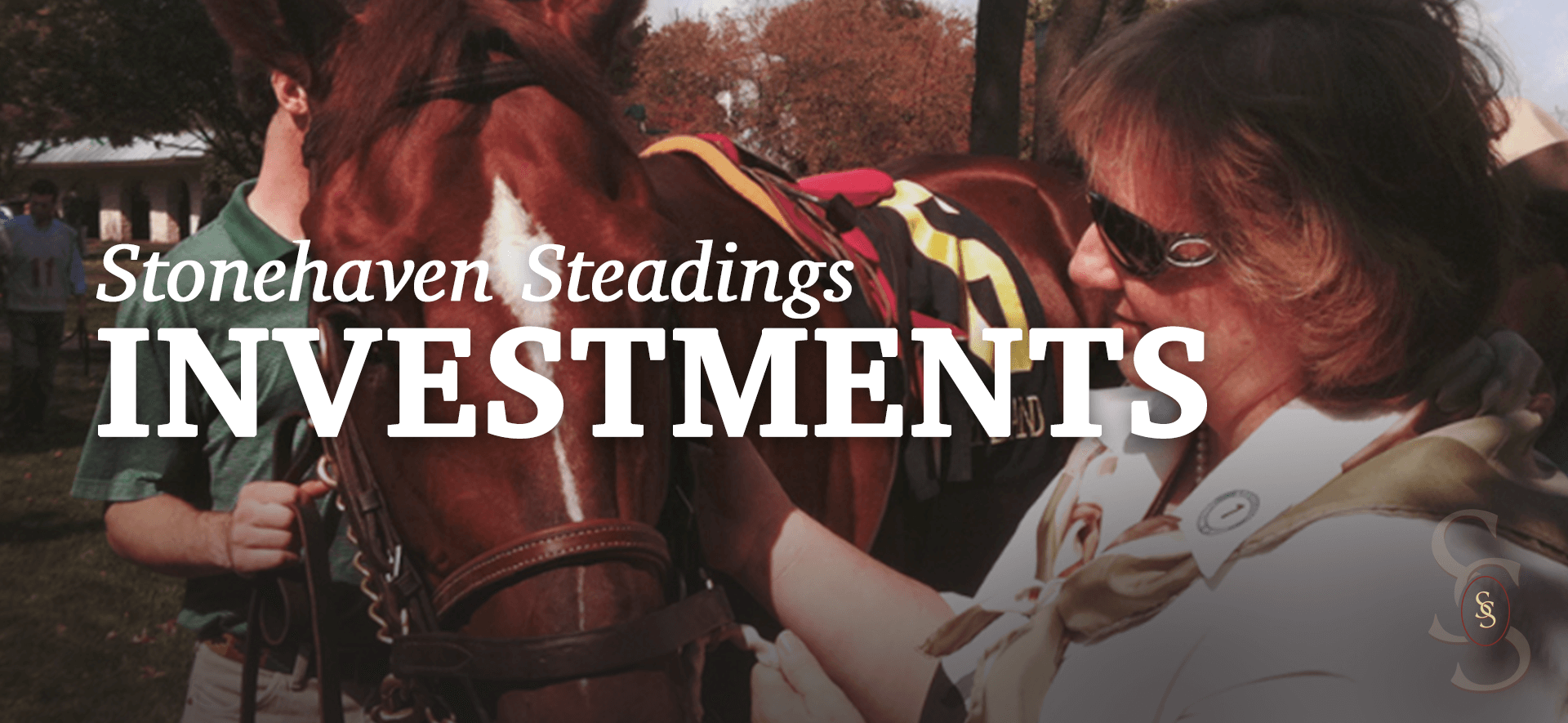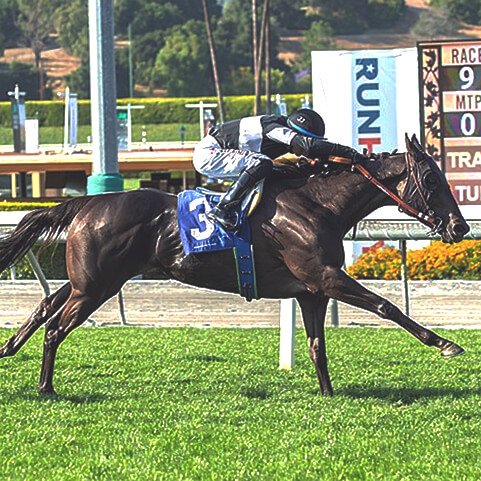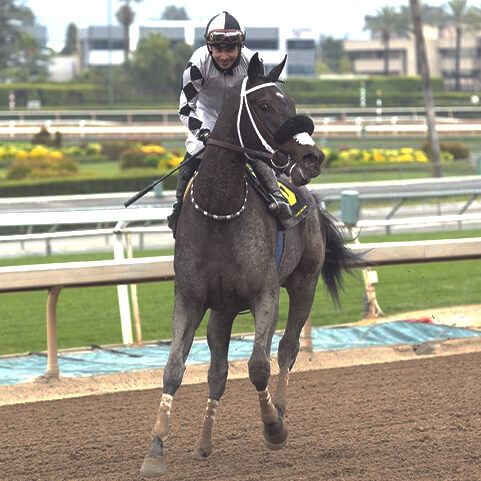Broodmares
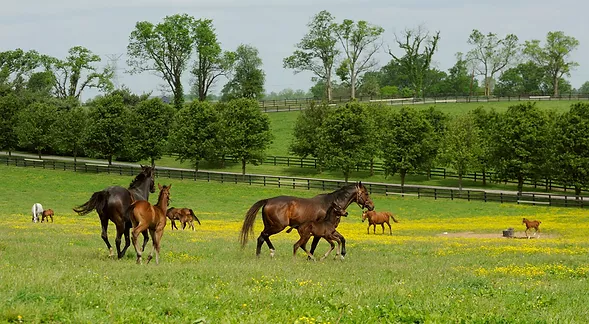 Owner Jeff Reddoch on broodmares:
Owner Jeff Reddoch on broodmares:
“Picking the right sire for the broodmare”
There have been many books written on this subject, some by experts who proved their ability to prove a large percentage of Graded Stakes Winners, Kentucky Derby Winners, etc. and some by experts who really don’t have much of a clue as to how to do it.
We find it interesting that you hear a lot about the most successful trainers and owners, but you hear almost nothing about the breeders. Where did the racehorse came from? Who bred it, who chose the cross, why did they choose this particular cross, how much did they spend, how good was the broodmare, what cross worked for this family or particular broodmare and what crosses did not work? What is the track record for this broodmare of producing great racehorses?
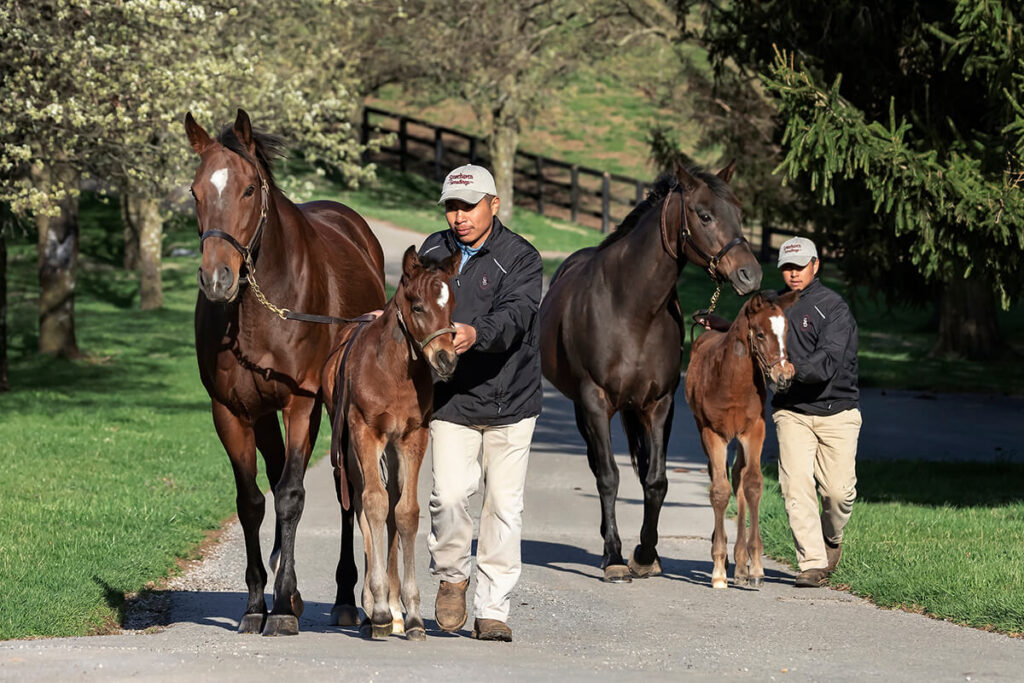 All too often, what we hear is, breed the best to the best, and hope for the best. But obviously there are many, many great racehorses that were not bred the best to the best. What seems to work well is picking crosses based upon what crosses have worked best for the bloodline of your broodmare. This gives you the greatest opportunity to produce a good to great racehorse. Sure there are many, many more things to consider, but percentages that work are important. Considering the sire’s ability to pass on its progeny by looking at its percentages of Stakes Winner production as compared to other sires; if the sire is a new sire and if you breed to it this year, two years of crops will have raced and if they did not do well, your yearling will not be worth much; breeding to a sire who’s stud fee has been growing, or who has been breeding to a significantly growing number of broodmares and/or quality of broodmares, which is indicative of which sires are passing on its progeny and producing Stakes Winners; what has worked with your broodmare or it’s first dam; breeding to improve desirable qualities such as speed, stamina and condition; temperament; grass, poly track or dirt; long distance or short speed race ability; price; value of your broodmare; pedigree match of both the sire and broodmare; avoiding too close inbreeding; and many more.
All too often, what we hear is, breed the best to the best, and hope for the best. But obviously there are many, many great racehorses that were not bred the best to the best. What seems to work well is picking crosses based upon what crosses have worked best for the bloodline of your broodmare. This gives you the greatest opportunity to produce a good to great racehorse. Sure there are many, many more things to consider, but percentages that work are important. Considering the sire’s ability to pass on its progeny by looking at its percentages of Stakes Winner production as compared to other sires; if the sire is a new sire and if you breed to it this year, two years of crops will have raced and if they did not do well, your yearling will not be worth much; breeding to a sire who’s stud fee has been growing, or who has been breeding to a significantly growing number of broodmares and/or quality of broodmares, which is indicative of which sires are passing on its progeny and producing Stakes Winners; what has worked with your broodmare or it’s first dam; breeding to improve desirable qualities such as speed, stamina and condition; temperament; grass, poly track or dirt; long distance or short speed race ability; price; value of your broodmare; pedigree match of both the sire and broodmare; avoiding too close inbreeding; and many more.
To just simply say, I like that sire and think he will be a good sire to breed to, or the sire I picked is almost the best or is the best, simply hasn’t shown to work well. To get a feel for which sires to consider to breed to, look back five years ago and see how many sires are still in Kentucky or are charging $30,000 or more. That will show you how many sires are made available, who were good to great racehorses, and who turned out not to be able to pass on its progeny. Assuming of course that these sires had the opportunity to breed to quality broodmares and of the right cross.
One of the reasons we like Kentucky, is that Kentucky is simply where the best sires are … If the sires do not produce a large percentage of Stakes Winners, they are quickly moved to other states or internationally. Only the best remain in Kentucky.”
